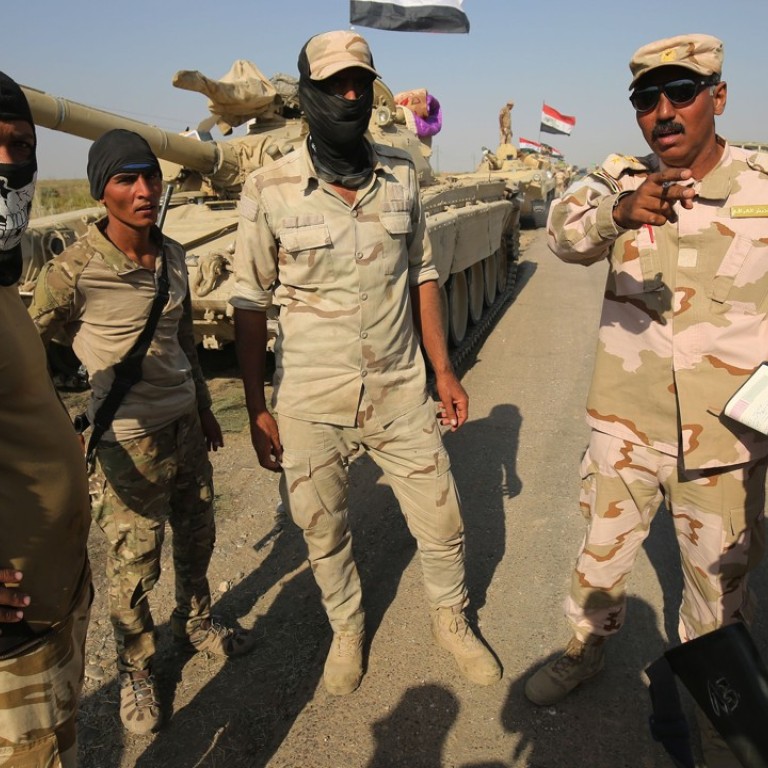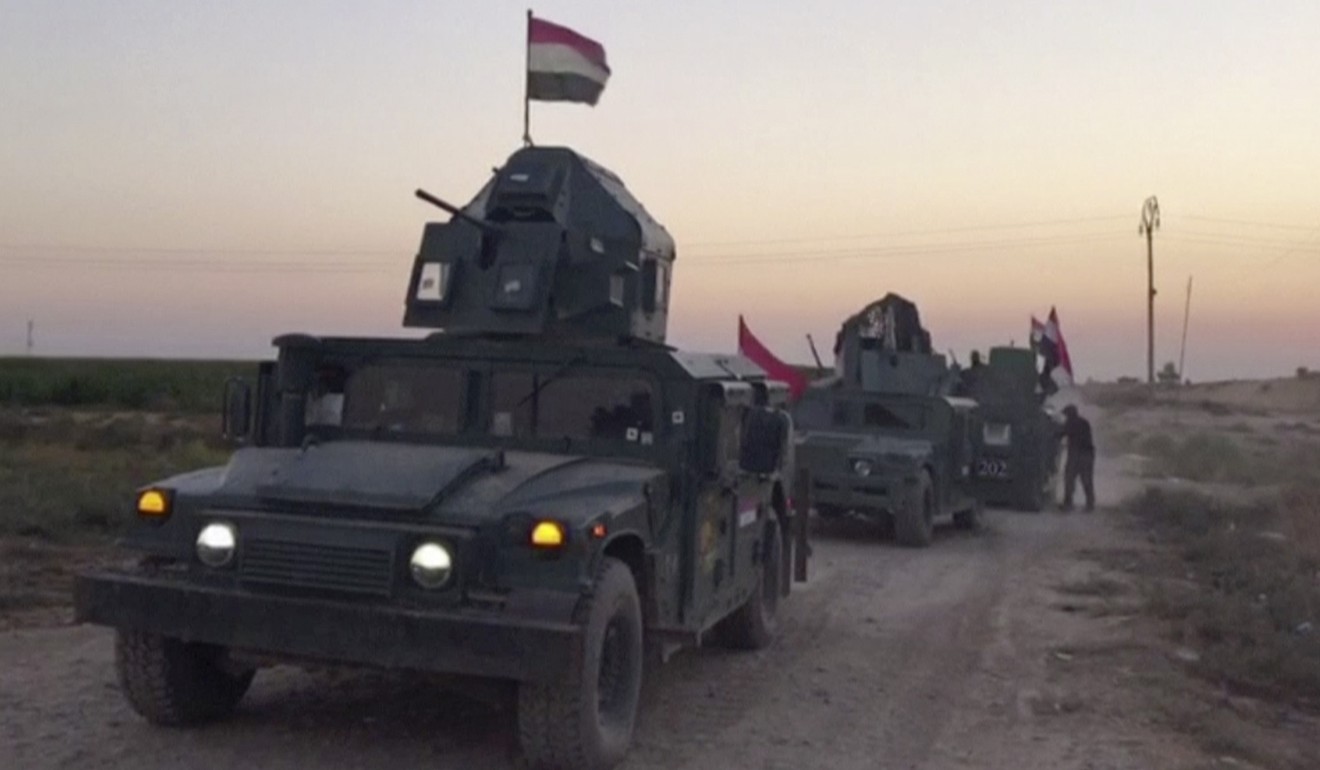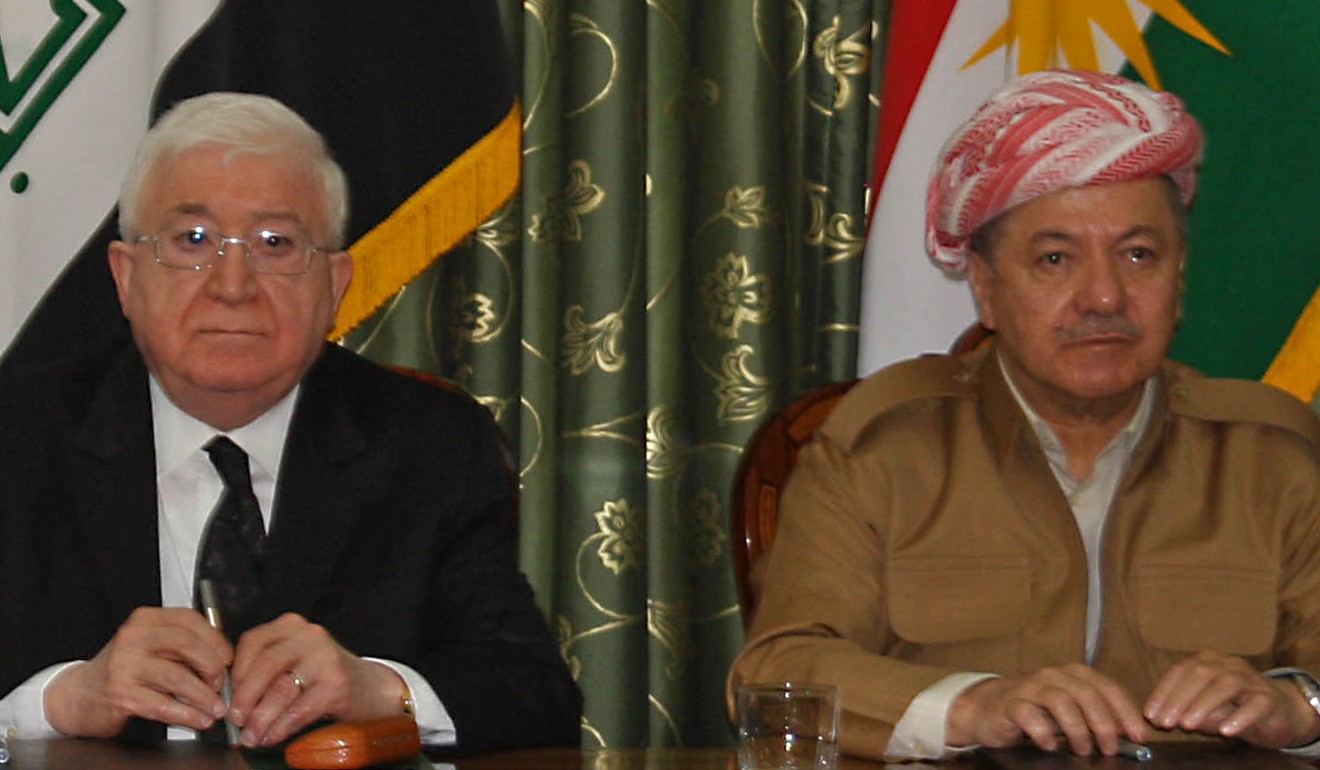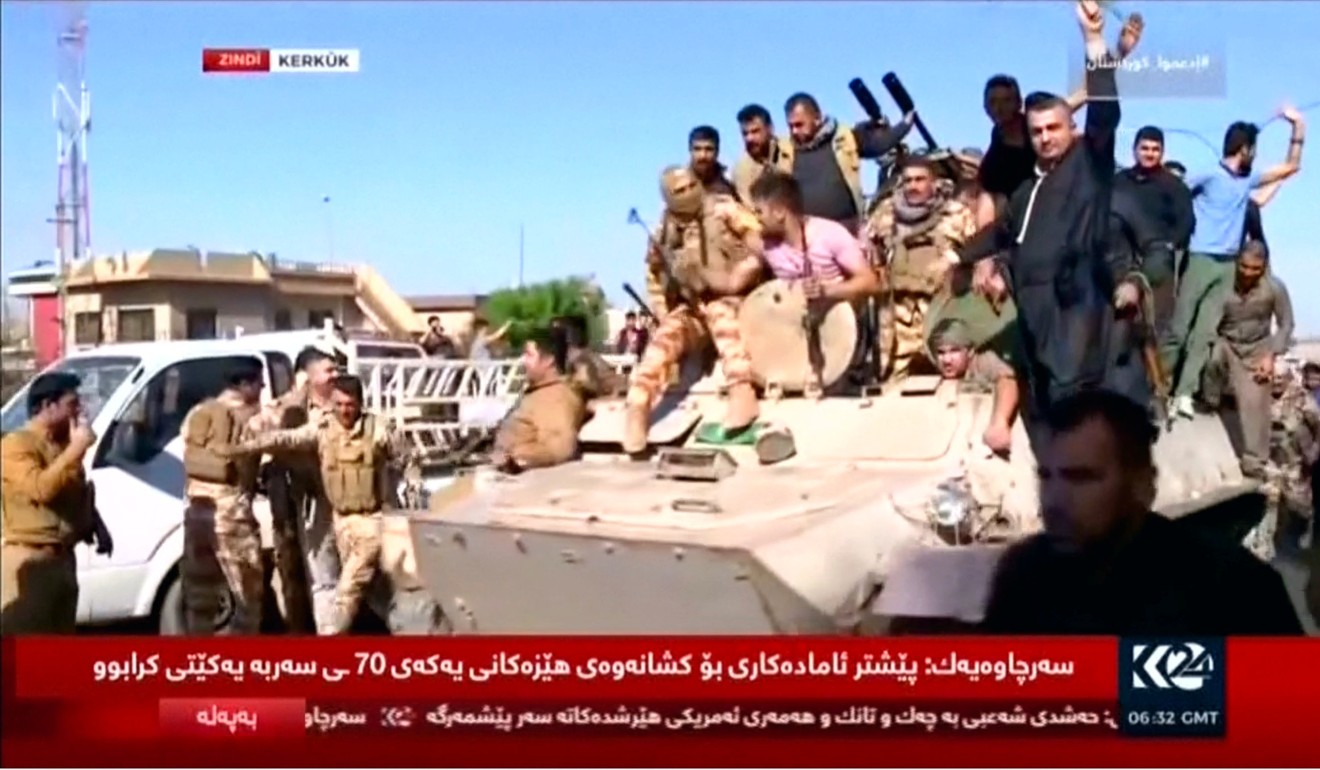
Kurds say Iraqi forces ‘burnt lots of houses and killed many people’ in attack on oil-rich region
Interior Ministry said federal forces had taken control of a power plant, a police station and industrial areas in what it referred to as “Operation Impose Security on Kirkuk”
Iraqi Kurdish officials said early on Monday that federal forces and state-backed militias have launched a “major, multipronged” attack aimed at retaking the disputed northern city of Kirkuk, causing “lots of casualties” in fighting south of the city.
The Kurdistan Region Security Council said in a statement that Kurdish forces known as peshmerga have destroyed at least five US-supplied Humvees being used by state-sanctioned militias following the “unprovoked attack” south of the city.
Inside Kirkuk, a multi-ethnic city home to more than 1 million people, residents closed themselves in homes and reported hearing sporadic booms that sounded like shelling and rocket fire.
Brigadier General Bahzad Ahmed, a spokesman for Kurdish forces, said federal forces had seized an oil and gas company and other industrial areas south of Kirkuk during fighting with Kurdish forces, which caused “lots of casualties”.
Bahzad did not provide a specific figure for the casualties, but said Iraqi forces had “burnt lots of houses and killed many people” in Toz Khormato and Daquq, south of the disputed city. He said Kurdish forces, known as peshmerga, had “destroyed one or two of their tanks”.
The army spokesman’s claims could not be independently verified.

Iraq’s Interior Ministry said in a statement that federal forces had taken control of a power plant, a police station and industrial areas near Kirkuk. It provided no further details on the fighting or casualties in what it referred to as “Operation Impose Security on Kirkuk”.
Tensions have soared since the Kurds held a non-binding referendum last month in which they voted for independence from Iraq. The central government, along with neighbouring Turkey and Iran, rejected the vote.
The United States has supplied and trained Iraqi federal forces and the peshmerga, both of which are fighting Islamic State. The US also opposed the referendum, and has urged both sides to remain focused on defeating the extremists.
US Army Colonel Ryan Dillon, a spokesman for the US-led coalition, tweeted that it was “closely monitoring sit. near Kirkuk; urge all sides to avoid escalatory actions. Finish the fight vs. #ISIS, biggest threat to all.”
ISIS is another acronym for Islamic State.
The central government and the autonomous Kurdish region in the north have long been divided over oil revenues and the fate of disputed territories like Kirkuk, which are controlled by Kurdish forces but outside their self-ruled region.
The Kurds assumed control of Kirkuk – in the heart of a major oil-producing region – in the summer of 2014, when IS militants swept across northern Iraq and the country’s armed forces crumbled. Baghdad has demanded the Kurds withdraw.

The Kurdish security council said the assault launched late on Sunday was aimed at entering the city and retaking the K-1 military base and nearby oilfields.
State-run broadcaster Al-Iraqiya had earlier reported that federal forces rolled into parts of the countryside outside Kirkuk without facing resistance. However, some residents of the city and an Iraqi militia commander reported shelling.
Al-Iraqiya reported a statement from Prime Minister Haidar al-Abadi’s office, saying he had ordered federal forces to “impose security in the city in cooperation with the inhabitants and the peshmerga”, indicating he was willing to share administration.
A commander of the local Kurdish police force said his forces remained in control of the province’s disputed oil wells.
“There’s been no agreement to hand over the wells until now. As for the future, I don’t know,” said Bahja Ahmad Amin.
Iraq’s state-sanctioned militias, the mostly Shiite Arab Popular Mobilisation Forces, were ordered to stay out of the city, according to al-Abadi’s office, and instead keep positions in the countryside. They are viewed with deep suspicion by Kurdish residents, who see them as beholden to Iran rather than Iraq’s central government. The predominantly Shiite militias are sponsored and guided by Tehran.
Ercuman Turkman, a PMF commander, said before forces began moving in that he expected orders to move on Kirkuk’s oil wells, its airport and the nearby K-1 military base, but not the city.

Haytham Hashem, another PMF commander, reported shelling on his position in Toz Khormato, 10km from the edge of Kirkuk city.
Baghdad has been turning the screws on the Kurdish region since the September referendum, pushing Kurd leaders to disavow the vote and accept shared administration over Kirkuk.
Iraq’s government barred international flights to and from the region and asked neighbouring Turkey and Iran to close their borders.
Iran closed its three official crossings with the Kurdish region on Sunday, Kurdish media reported. It also froze currency transfers to four banks operating in the Kurdish region.
Al-Abadi has demanded shared administration over Kirkuk. His Cabinet said Sunday that fighters from Turkey’s Kurdish insurgency, the PKK, were beginning to appear in Kirkuk, and declared that would be tantamount to an act of war.

